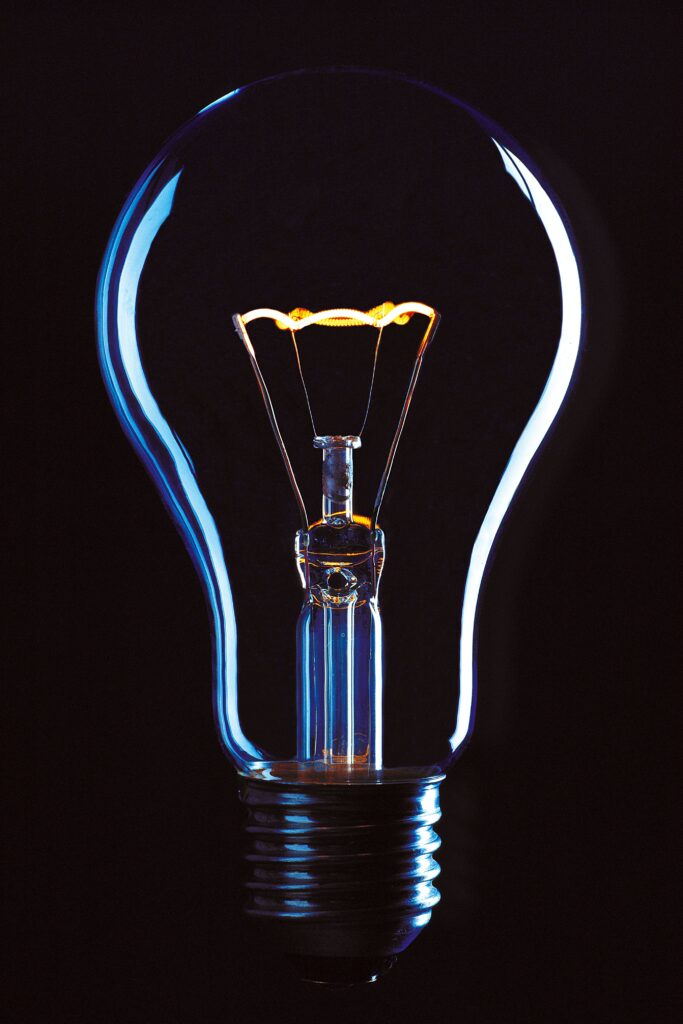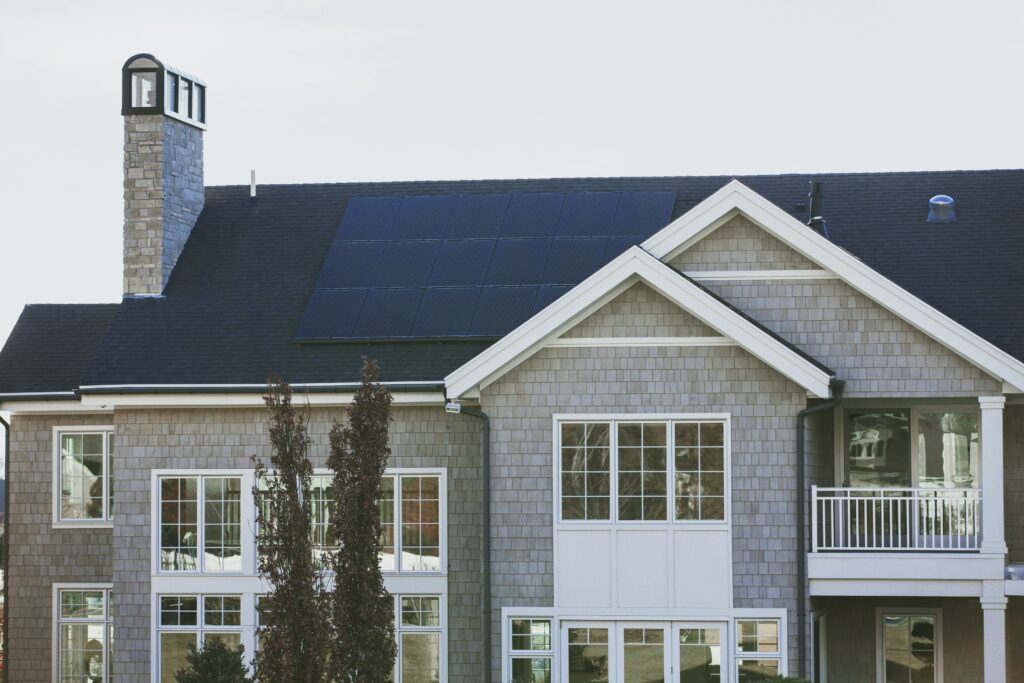If you’ve ever experienced a power outage, you know how frustrating it can be to be left in the dark. That’s why many homeowners are considering investing in a generator to keep their homes up and running during unexpected outages. But with so many options available, it can be overwhelming to determine the right generator for your 2,000 sq ft house. In this article, we’ll explore the different types of generators and their price ranges, helping you make an informed decision and ensuring your home stays powered when it matters most.
Understanding Different Types of Generators
Portable Generators
Portable generators are versatile and easy to move around, making them a popular choice for homeowners. These generators usually run on gasoline or propane, providing power for a variety of appliances and devices during power outages or while camping. Portable generators have a wide range of power outputs, from small units that can power a few essentials to larger models capable of running the majority of your household appliances.
Standby Generators
Unlike portable generators, standby generators are designed to be permanently installed outside your home. They are connected directly to your home’s electrical system and run on natural gas or propane. Standby generators are more powerful than portable generators and can automatically detect power outages, providing backup power within seconds. This makes them an ideal choice for homeowners who want uninterrupted power supply during emergencies.
Inverter Generators
Inverter generators are known for their quiet operation and fuel efficiency. These generators use advanced technology to produce stable and clean power, making them suitable for sensitive electronics like laptops and smartphones. Inverter generators adjust their engine speed based on the power demand, resulting in reduced fuel consumption and noise levels. They are compact and lightweight, making them a popular choice for camping trips or outdoor events.
Examining Power Needs for a 2,000 Sq Ft House
Typical Appliances
Before determining the power requirements for a 2,000 sq ft house, it’s essential to consider the typical appliances that will be powered during an outage. These appliances may include refrigerators, freezers, air conditioning units, heating systems, water pumps, lights, and electronics. To calculate the total power consumption, refer to the appliances’ wattage ratings and estimate the number of hours each appliance is likely to be used during a power outage.
Peak vs. Average Power Consumption
It’s important to differentiate between peak and average power consumption when estimating the power needs for a 2,000 sq ft house. Peak power refers to the maximum power required by appliances when they start or run at full capacity. Average power consumption, on the other hand, reflects the typical power usage averaged over a specific time period. Understanding the difference between these two measures will help determine the generator’s required power output.
Factors Affecting Power Consumption
Several factors can affect power consumption in a 2,000 sq ft house. These factors include climate conditions, insulation levels, number of occupants, lifestyle habits, and the efficiency of appliances. For example, a house located in a region with harsh winters may require more power for heating. Similarly, a household with energy-efficient appliances and fewer occupants may have lower power needs compared to a household with older, energy-consuming devices.

Cost of Portable Generators for a 2,000 Sq Ft House
Minimum Power Requirement
To determine the minimum power requirement for a 2,000 sq ft house, it’s crucial to calculate the combined wattage of essential appliances or circuits that need to be powered during an outage. This typically includes refrigerators, lights, and a few critical outlets. A general rule of thumb is that a 2,000 sq ft house may require a portable generator with a minimum power output of around 5,000 to 7,000 watts.
Considerations When Buying Portable Generators
When buying a portable generator for a 2,000 sq ft house, there are several factors to consider. First, consider the type of fuel the generator runs on, such as gasoline, propane, or dual fuel options. Next, assess the runtime of the generator on a full tank of fuel, as this will determine how long it can power your essential appliances. Other considerations include noise levels, ease of use, and the presence of additional features like electric start and fuel gauge.
Typical Cost Ranges
The cost of portable generators for a 2,000 sq ft house can vary based on several factors, including the power output, brand, and additional features. On average, portable generators can range from around $500 for lower-powered models to $3,000 or more for higher-powered units with advanced features. It’s important to consider not only the upfront cost but also the long-term value and reliability of the generator when making a purchasing decision.
Cost of Standby Generators for a 2,000 Sq Ft House
Benefits of Standby Generators
Standby generators offer several benefits for homeowners with a 2,000 sq ft house. Firstly, they provide seamless and automatic backup power during outages, ensuring continuity of critical functions like heating, cooling, and refrigeration. Standby generators are also powerful enough to support the entire household, including high-demand appliances such as air conditioners and electric ovens. Additionally, standby generators require minimal user intervention, as they can be programmed to start and stop automatically.
Installation Costs
Installation costs for standby generators are higher compared to portable generators due to their permanent setup. Professional installation is recommended to ensure proper wiring and compliance with local building codes. The cost of installation can vary depending on factors such as the generator’s power capacity, the complexity of the electrical system, the distance from the fuel source, and any necessary permits. On average, the installation cost for a standby generator can range from $3,000 to $10,000 or more.
Typical Cost Ranges
The cost of standby generators for a 2,000 sq ft house depends on various factors, including the generator’s power output and brand. Standby generators with a power output of around 15,000 to 20,000 watts can cost between $5,000 and $10,000 for the equipment alone. When accounting for installation costs, the total cost can range from $8,000 to $20,000 or more, depending on the aforementioned factors. It’s important to consult with a professional installer to determine the appropriate generator size and configuration for your specific needs.

Cost of Inverter Generators for a 2,000 Sq Ft House
What is an Inverter Generator
An inverter generator is a type of generator that produces high-quality, stable power by converting it from AC (alternating current) to DC (direct current) and then back to AC. This process eliminates fluctuations and voltage spikes, making inverter generators safe for use with sensitive electronics. Inverter generators are also known for their energy efficiency and quiet operation.
Benefits of Inverter Generators
Inverter generators offer several benefits for homeowners with a 2,000 sq ft house. Firstly, they provide clean and stable power, making them suitable for sensitive electronics like laptops, TVs, and smartphones. The fuel efficiency of inverter generators allows for longer runtime on a single tank, reducing the need for frequent refueling. In addition, their compact size and lightweight design make them easy to transport and store. Overall, inverter generators are an excellent choice for those who prioritize clean power and quiet operation.
Typical Cost Ranges
The cost of inverter generators for a 2,000 sq ft house can vary depending on the power output and brand. In general, smaller inverter generators with a power output of around 2,000 to 3,000 watts can cost between $500 and $1,500. Larger inverter generators with higher power outputs, such as 4,000 to 6,000 watts, can range from $1,500 to $3,000 or more. As with any generator, it’s important to consider the long-term value and overall quality of the equipment when making a purchasing decision.
Factors Affecting the Cost of Generators
Brand Reputation and Quality
The brand reputation and quality of a generator can significantly affect its cost. Well-established brands with a history of producing high-quality and reliable generators may come with a higher price tag. However, investing in a reputable brand can provide peace of mind in terms of durability, performance, and customer support.
Power Output
The power output of a generator plays a crucial role in determining its cost. Generally, higher-powered generators with larger power outputs will cost more than lower-powered models. It’s essential to accurately assess the power needs of your 2,000 sq ft house to avoid overspending on a generator with more power than necessary.
Additional Features
Certain additional features can increase the cost of generators. These features may include electric start capabilities, remote monitoring and control, fuel gauge, multiple outlets, and parallel operation capabilities. While these features may enhance convenience and functionality, they can add to the overall cost of the generator. Consider your specific needs and budget when deciding which additional features are worth the investment.

Installation Costs for Generators
DIY vs Professional Installation
When it comes to generator installation, homeowners can choose between a DIY approach or hiring a professional. While a DIY installation may seem cost-effective, it’s crucial to have a thorough understanding of electrical systems and local building codes. Hiring a professional ensures proper installation, compliance with regulations, and peace of mind. Professional installation costs can vary depending on the generator type, complexity of the electrical system, and local labor rates.
Installation Fees for Different Generator Types
The installation fees for different generator types can vary. Portable generators generally do not require professional installation, as they can be easily set up by homeowners. However, it’s important to consider any necessary electrical connections and safety precautions. Standby generators typically require professional installation, which can cost between $1,000 and $5,000 or more, depending on the factors mentioned earlier. Inverter generators, similar to portable generators, can be set up by homeowners without significant installation costs.
Running and Maintenance Costs for Generators
Fuel Consumption
The fuel consumption of a generator directly impacts its running costs. It’s important to consider the fuel efficiency of the generator when estimating the long-term expenses. Portable generators often rely on gasoline or propane, with propane being more cost-effective in some regions. Standby generators usually run on natural gas or propane, which can provide more stable fuel costs compared to gasoline. Inverter generators are known for their fuel efficiency, helping to reduce long-term fuel expenses.
Maintenance Practices
Regular maintenance is vital to ensure the longevity and reliable performance of a generator. Maintenance practices may include changing oil, cleaning or replacing air filters, inspecting and tightening electrical connections, and testing the generator periodically. While some maintenance tasks can be performed by homeowners, it’s recommended to have annual professional maintenance to identify any potential issues and ensure optimal generator performance.
Repair and Replacement Costs
Over time, generators may require repairs or parts replacement. The cost of repairs can vary depending on the extent of the issue and the availability of replacement parts. It’s advisable to purchase generators from reputable brands that offer reliable customer support and readily available replacement parts. Additionally, considering the warranty coverage of the generator can provide financial protection in case of unexpected repairs or replacements.
Where to Buy Generators for a 2,000 Sq Ft House
Local Shops
Local home improvement stores, outdoor equipment retailers, and electrical supply stores often carry a variety of generator options. Visiting these local shops allows you to inspect the generators in person, ask questions to knowledgeable staff, and compare different models and brands. Additionally, local shops may offer delivery and installation services, providing a convenient one-stop-shop experience.
Online Marketplaces
Online marketplaces like Amazon, eBay, and specialized generator retailers offer a wide selection of generators at competitive prices. Shopping online allows you to compare prices, read customer reviews, and access a broader range of models and brands. However, it’s important to carefully review customer feedback and seller ratings to ensure purchasing from reputable sources.
Factory Direct
Many generator manufacturers sell their products directly through their websites or authorized dealers. Buying generators directly from the manufacturer provides assurance of authentic products and access to manufacturer warranties and customer support. Additionally, some manufacturers may offer exclusive deals or promotions that are not available through other retailers. Checking the manufacturer’s website or contacting their customer service is a reliable way to explore factory direct purchasing options.
Conclusion: Finding the Best Generator for Your Needs
Determining the best generator for your needs involves considering various factors. Firstly, accurately assess the power requirements of your 2,000 sq ft house by considering the appliances and circuits that need to be powered during an outage. Next, prioritize the features that are important to you, such as fuel type, runtime, noise levels, and additional functionalities. Balancing these features with your budget will help you choose a generator that provides the necessary power backup while being cost-effective. Lastly, consider the long-term maintenance and running costs to ensure the generator remains reliable and affordable throughout its lifespan. With careful consideration of these factors, you can find the best generator to meet your specific power needs for your 2,000 sq ft house.




